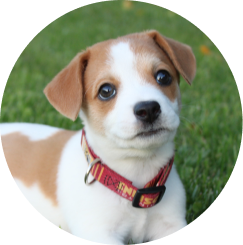
Thousands of stray and unwanted animals are euthanized in shelters across the United States every year. Many of these deaths are the avoidable result of owners failing to spay and neuter their pets. Even if you keep a close watch on your pet, accidents happen, and unexpected offspring means more animals that won’t be given a chance at full, happy lives.
Spaying and neutering can help end this cycle, and both procedures can have health benefits for pets. Those include eliminating the risk of some cancers and reducing unwanted behaviors such as roaming, spraying, and aggressive or dominant tendencies.
Caring for your pet after spay/neuter surgery
Both spaying and neutering are safe but are also considered major surgery requiring a full two weeks (14 days) of recovery time. Recovery may also include pain medication; lethargy is common for the first couple of days following the procedure.
It’s important that you monitor your pet during the recovery period. This includes
- Limiting activity. Walk your pet on a leash to eliminate and keep him or her in a crate or kennel when unsupervised.
- Preventing the pet from licking or biting the incision. Use an e-collar or inflatable collar.
- Keeping the incision dry. No baths during the recovery period.
- Making sure your pet’s pain is managed. Call us if your pet appears to be having discomfort.
- Keeping recently neutered males away from unspayed females. They can still impregnate a female for up to 30 days after they are neutered.
Your Winslow Park veterinarian can help you determine when is the best age to have your pet spayed or neutered, and we’ll be happy to answer any questions you may have about the procedure. Please don’t hesitate to give us a call at (203)226-5555.